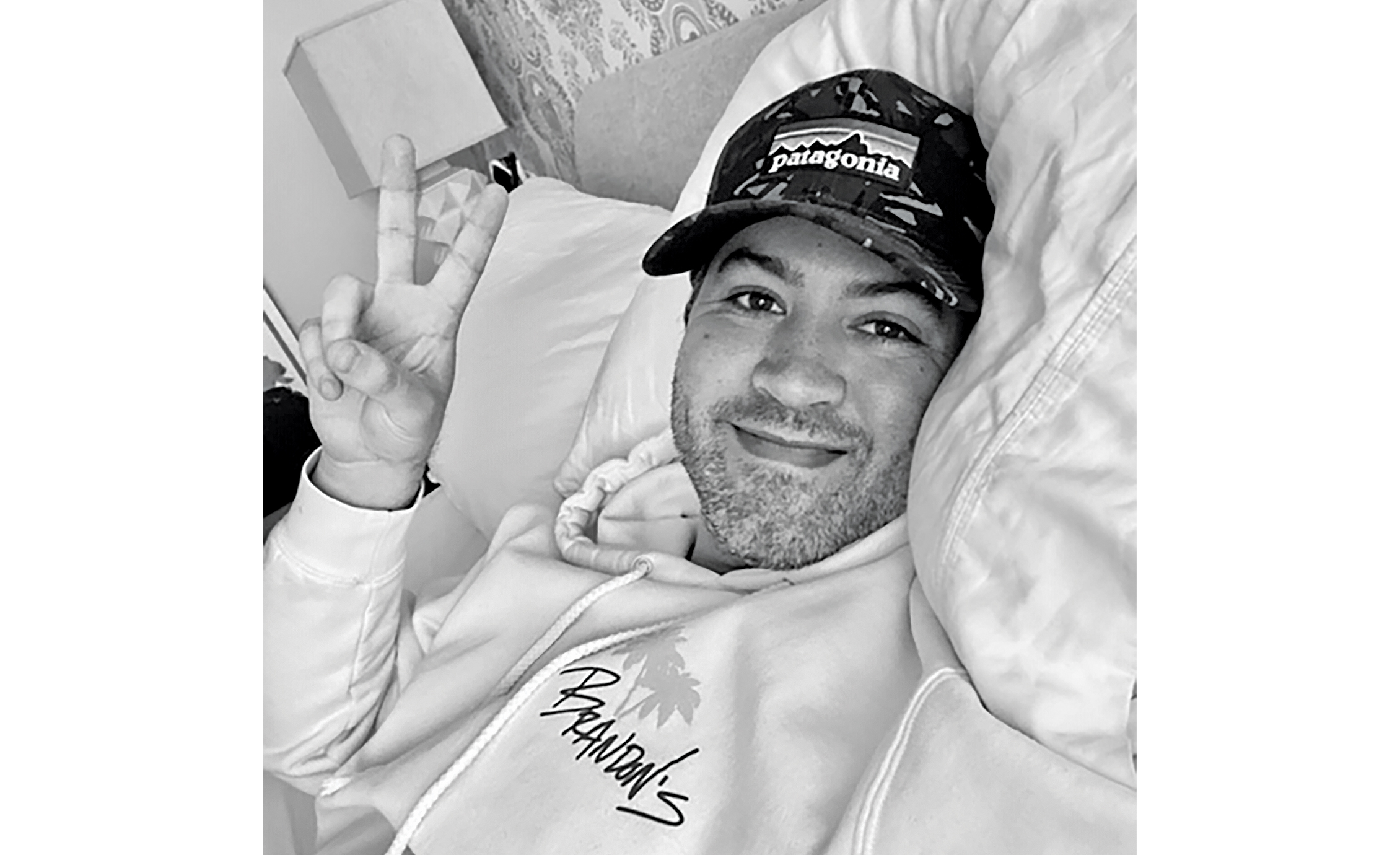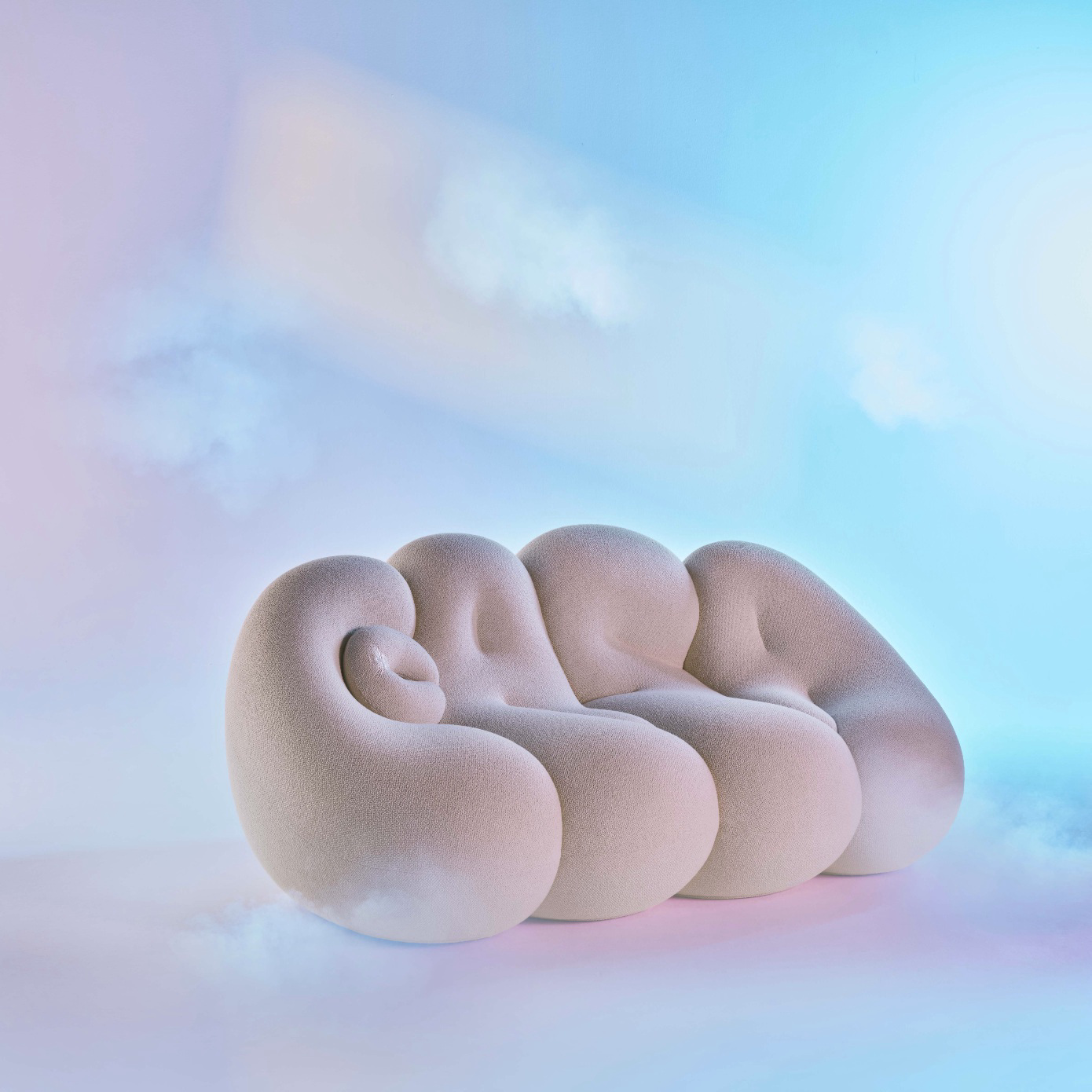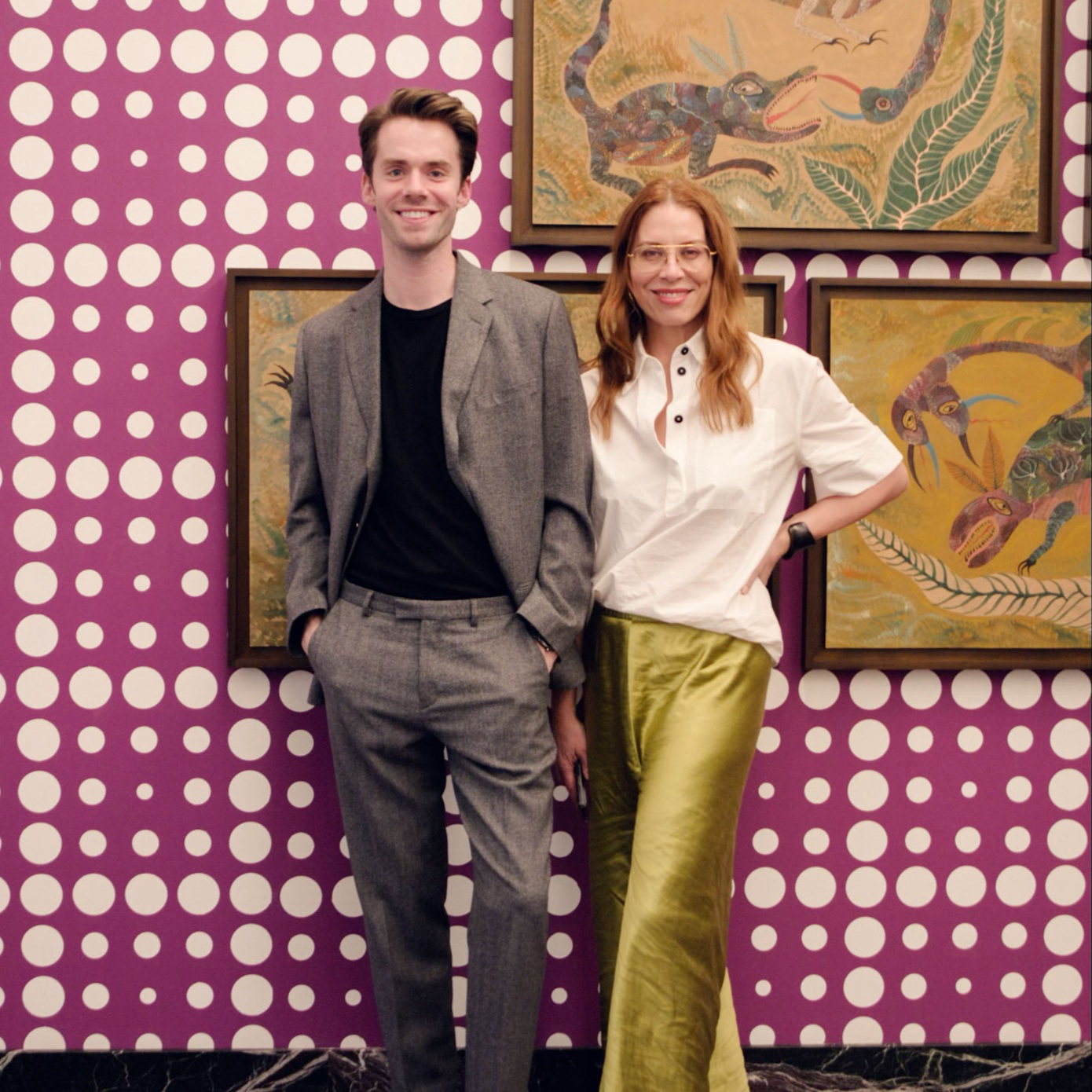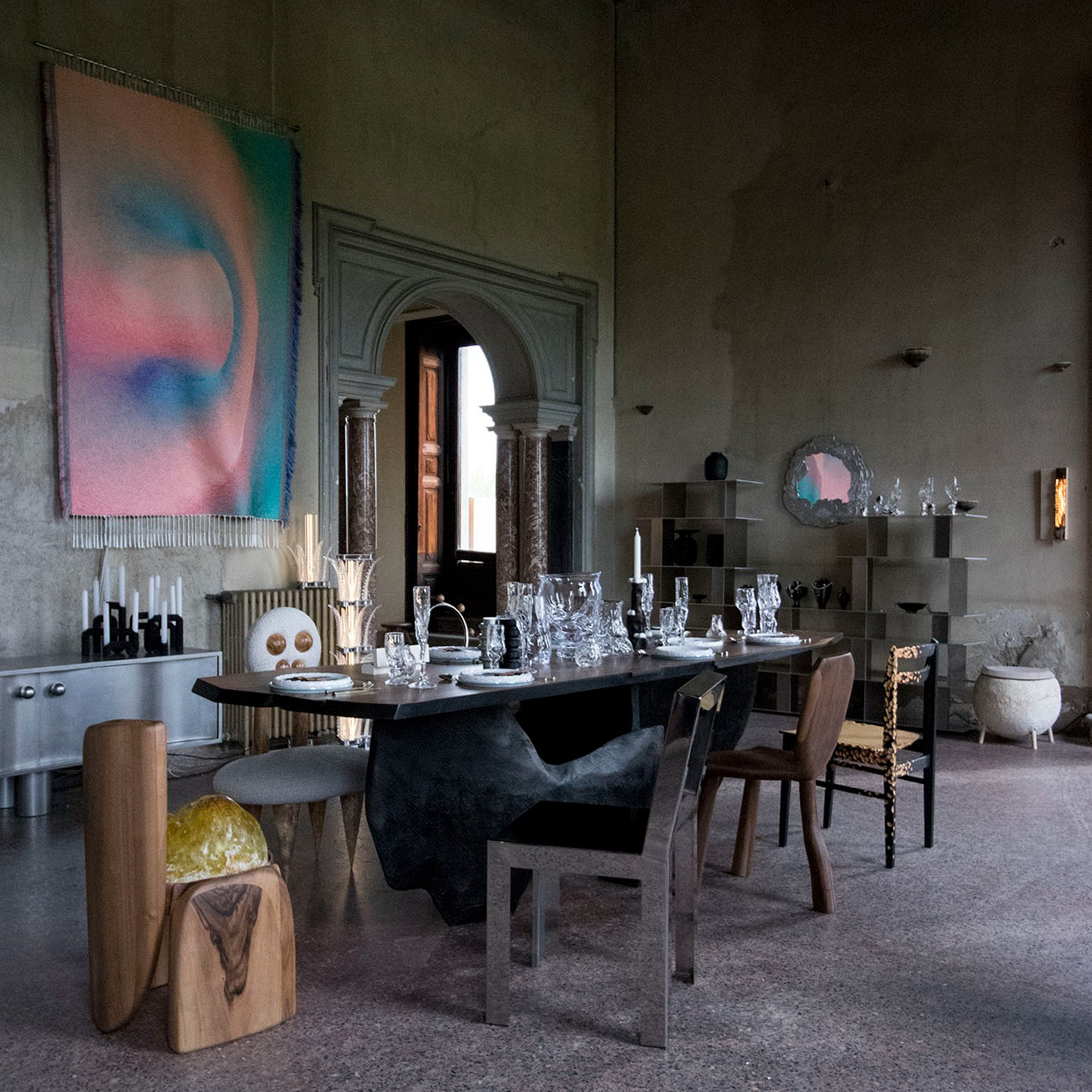
Texas-born Brandon Maxwell is known primarily as a fashion designer whose clothes embody a contemporary American aesthetic: sleek, sexy, simple, streamlined, starry (he is a celebrity favorite).
The thirty-five-year-old’s eponymous line is rife with staples like leggy denim, monochrome and sporty eveningwear, and fabulous, expensive overcoats (these often come with a 1980s-esque tinge). In 2019, he added crisp, clean menswear. In addition to his fashion-world ascent, Maxwell has also proven himself something of a newfangled polyglot, a wears-his-heart- on-his-sleeve everyman with elite connections but relatable vulnerability. He is the unlikely public figure who, for example, might be spotted in the background video footage of Lady Gaga prepping for her 2017 Super Bowl show—which he styled—while at the same time readily discussing personal insecurities on his Instagram feed: “this pic took a stylist, two hair and makeup artists, double Spanx, major flash and a retouching, just to make me look... normal?” He has starred in a television commercial for Kia and is currently a judge on the latest iteration of Project Runway. Point being, among the many young professionals in the United States who list “fashion designer” atop their resumes, Maxwell has quite a few additional career bullet points that follow—and an approach to life in the spotlight that is totally his own.
Maxwell and I spoke over the phone as the harsh realities of the COVID-19 pandemic started to escalate in New York; he from his residence in Brooklyn, me from a bathtub in my childhood home on Long Island, because my siblings and I were all under the same roof and it was the only place I could find some quiet. Naturally, our conversation started on the topic of anxiety. This interview has been edited and condensed.
NICK REMSEN: You are very candid about your anxieties and trepidations, especially on social media. I wanted to ask about the sort of feedback you receive from this; does it help you? Is it generally positive? Is it ever negative?
BRANDON MAXWELL: That’s my natural personality. I mean, you and I have known each other for a few years, so you know that’s actually true. Very early on when I started, I met with a publicist who basically said, “everything you say and do, we need you to not do that.” But, it turns out, by not changing, I’ve found my own little version of success. I am sure that there are people within the industry, or in my orbit, who do not like the way I talk or the things I say. I guess I’m not doing it for them. I look like myself. I’ve got gray hair. I’ve got a bald spot in the back. I have insecurities and anxieties, just like every single other person. I didn’t come from this pedigreed world. I made a conscious decision early on: I wasn’t going to sell fake dreams. I was just going to tell the truth.
NR: Have you found, in being so transparent, that you’ve developed relationships on social media? Have you been able to help people?
BM: Yes. My favorite thing is when someone goes to my Instagram and says, “Can you deliver this message to Brandon?” and I reply saying, “Hi, it’s me.” We don’t have a social media team. The most touching note I received recently was from a woman who had been at a wedding where the bridesmaids were wearing Brandon Maxwell. She said, “I looked you up for the dresses, but I stayed for the message.”
NR: Love that.
BM: I also want to emphasize that I am not trying to be on some weird soapbox. I am one of the most imperfect people. But I feel like creating a positive space is important. There’s enough criticism in the world.
NR: Speaking of criticism, let’s talk about professional feedback. We’ve had post-show chats before and you’re well aware that there are people who are fans and others who aren’t. One thing that has come up is that you’re sometimes billed as the “next Ralph Lauren.” How’s that for pressure?
BM: My childhood icon was Ralph Lauren. It does not bother me. I’m flattered. But I am so, so sorry to Mr. Lauren. If he opened a newspaper and read that comparison, I’m sure he’d think, “what?” I will never be him.
NR: You never know! I think one thing that sets you apart from other designers is just how multidisciplinary you are. You’re on TV, you’re in commercials. Do you want to continue to broaden that element of your working life?
BM: I’m of the mindset that what goes up must come down. We’ve been very fortunate as a company to go up, and we will continue with that momentum, but I’ve always wanted to create other avenues that were sustainable, because I’ve seen this movie before. I don’t know if people want to see me in this space forever, but I am blessed to have been here at all. I’d be blessed even if we only lasted our first season.
NR: Timely wisdom. Now that we’re isolating at home, tell me, do you collect art? When you’re at home, do you need a break from the visuals or do you surround yourself with creativity?
BM: My house has art everywhere! I have photographs and paintings everywhere. It’s basically a color explosion. I have a beautiful portrait of Doutzen [Kroes] by Inez and Vinoodh above my bed. I have a lot of pieces by artists in Marfa. I actually have a Keith Haring print in the stairwell. But I should say, I’m not moving towards a quote-unquote collection. I’m not trying to sell anything. These are things I’ve saved up for, that I love and want around me. I’ve even asked artists to hold things, when I couldn’t afford a piece and needed to work towards it. I’m not trying to make some sort of portfolio. This art is for when I’m drinking my coffee.
NR: Well, enjoy it even more now, to the extent that you can. And thank you for hopping on the phone at this very, very strange moment in time. BM: Thank you! I appreciate it. And, if we’re still in isolation when the magazine comes out, I’ll close by saying what I keep telling myself now: stay calm.



